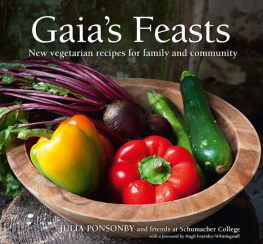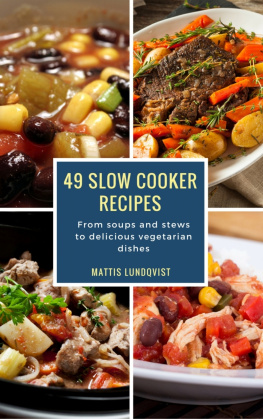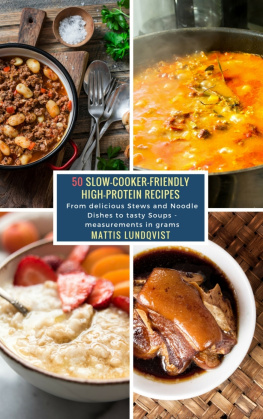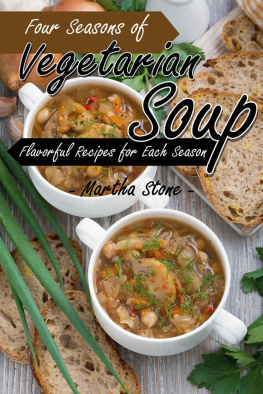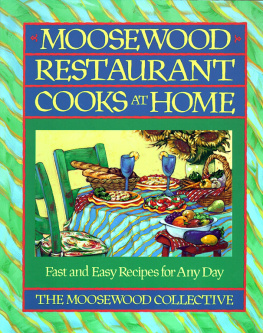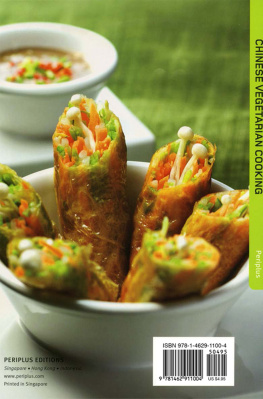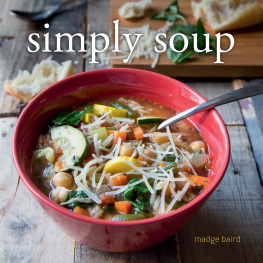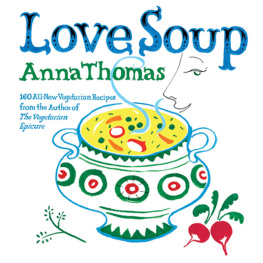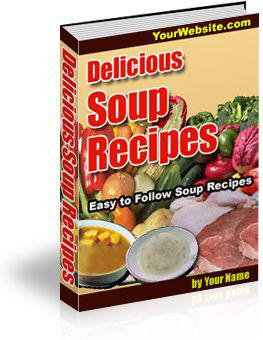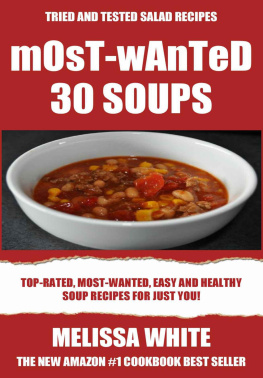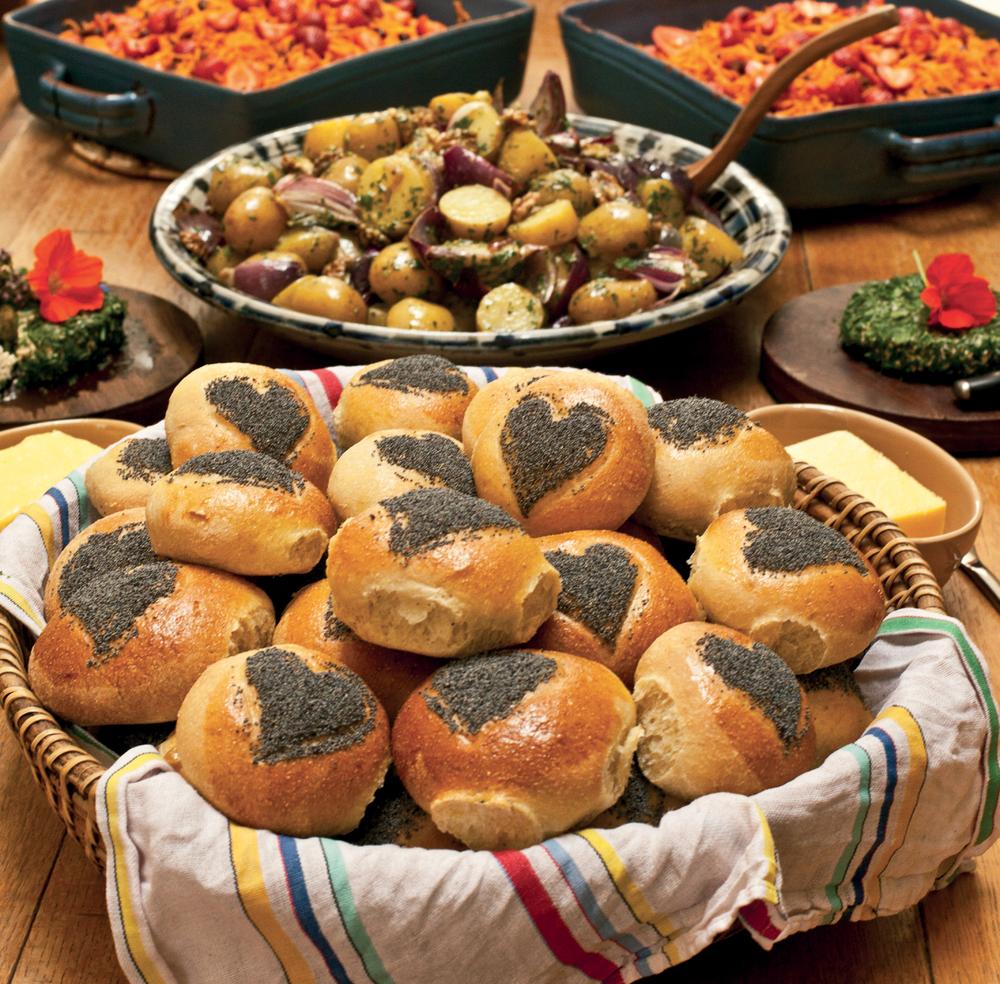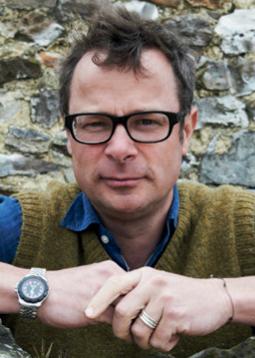Good food, to me, is not food thats merely well cooked and tasty. When I use that term, Im thinking of food that has been produced in a sustainable way, harvested in season, and that has travelled as little as possible food that has been cooked with care and enthusiasm and served with an understanding of its importance, not as mere sustenance, but as nourishment for body and soul.
By these criteria, there cant be many better places to eat than Schumacher College. Here, an understanding of the power of food to soothe and sustain is twinned with a strongly rooted belief in the importance of growing, cooking and eating together, as a community. This book is a vivid and delicious illustration of these principles.
Flick through these pages, take in the welcoming simplicity and cheeriness of the dishes, and you will be both comforted and inspired. As with Julias first book, Gaias Kitchen, the recipes are bold and unfussy, and they have a hearty generosity in terms of both their abundant use of fresh produce and the suggested community sized quantities listed against each one. This last feature creates an image, even as you read the recipe, of shared eating, and brings home just how enriching it can be to break bread with others.
Julia has been part of Schumacher College for 24 years and has been the chef there for 15 years. Such commitment and longevity in a professional cook is a rare thing these days, and illustrates the integrity of her work her cooking is inextricably linked to the principles of the college itself. This lends a real sense of authenticity to Julias books theyre rooted in a place and a philosophy. The years at Schumacher have given her, and the talented cooks who work with her, the opportunity to develop recipes organically, as the College has prospered and grown. And of course all these dishes have been enjoyed and commented upon by the students and teachers who pass through a reassuring endorsement if ever there was one!
Julias food is beautifully simple, and its honest by which I mean it uses fresh, seasonal ingredients and does as little to them as possible. I love the fact that theres a slightly retro feel to the recipes: no concessions are made here to fashion. This is pleasingly no-frills vegetarian cooking that celebrates the abundance of vegetables and fruits, pulses and grains, herbs, spices and dairy products available to us. Theres a wonderful array of sweet treats and cakes here too, and a very tempting chapter on baking certainly something to please everyone.
With its emphasis on enjoying, sharing and appreciating food in the most profound sense, this book will not only make you want to cook but it will also make you want to cook for other people. Its that open-hearted spirit the most important thing a cook can possess that clinches it for me.
Hugh Fearnley-Whittingstall, June 2014
From Gaias Kitchen by name to Gaias Kitchen by nature
In 2001, Schumacher Colleges Gaias Kitchen became the winner of the Gourmand World Cookbook Best Vegetarian Cookbook Award. At first, the fact that we were even being tempted with winning such an outrageously impossible and absurdly enormous category seemed like some kind of joke akin to one of those random letters that come through the post, or emails that land in your inbox, telling you youve been selected to win a holiday, or a million pounds
We called our first cookbook Gaias Kitchen in honour of the inaugural course taught at the College by Professor James Lovelock on Gaia Theory. Inspired by author William Golding, Lovelock adopted the name of the Greek Earth-mother to label the evolving earth system science he had been developing with evolutionary biologist Lynn Margulis. Calling the theory after Grandma Gaia seemed to honour the life-giving nature of our Earth though Jim Lovelock may have wished many times that hed stuck with something plainer, as this might have avoided the cynicism of many hard-line scientists, for whom the mythological name seemed (unjustifiably) to create an unscientific cloud around the theory.

Neither the name Gaias Kitchen nor the Gourmand Award were intended as a joke but the reality is that they could have been! We are now operating far more as a true Earth-system kitchen than we were 15 or 20 years ago. Then, much of our food was influenced by Californian fusion cooking, and mixed together many out-of-sync ingredients from all around the globe, in a way that is typical of people who cook from shops rather than from gardens. Now, with our own productive garden growing up around us in the grounds of the Old Postern, tended by our own horticulture students, we embed our kitchen and our cooking habits much more successfully in the environment we live in: our little patch of the living world; earth of the planet Earth, which some call Gaia.
The publication of Gaias Kitchen quickly revealed a strong demand for the scaling up of quantities that we routinely practise when creating meals for a crowd at Schumacher College. It was with this in mind that we embarked on producing another cookbook. It is, we hope, a timely and practical contribution at a moment in history when people in the West are rediscovering the potential of local community as an anchor for convivial survival, as society responds to the need for a more sustainable future. Once more, then, we have included both the family and the community scale for each recipe although it is true that, for many people, even cooking for six is an event in itself!

